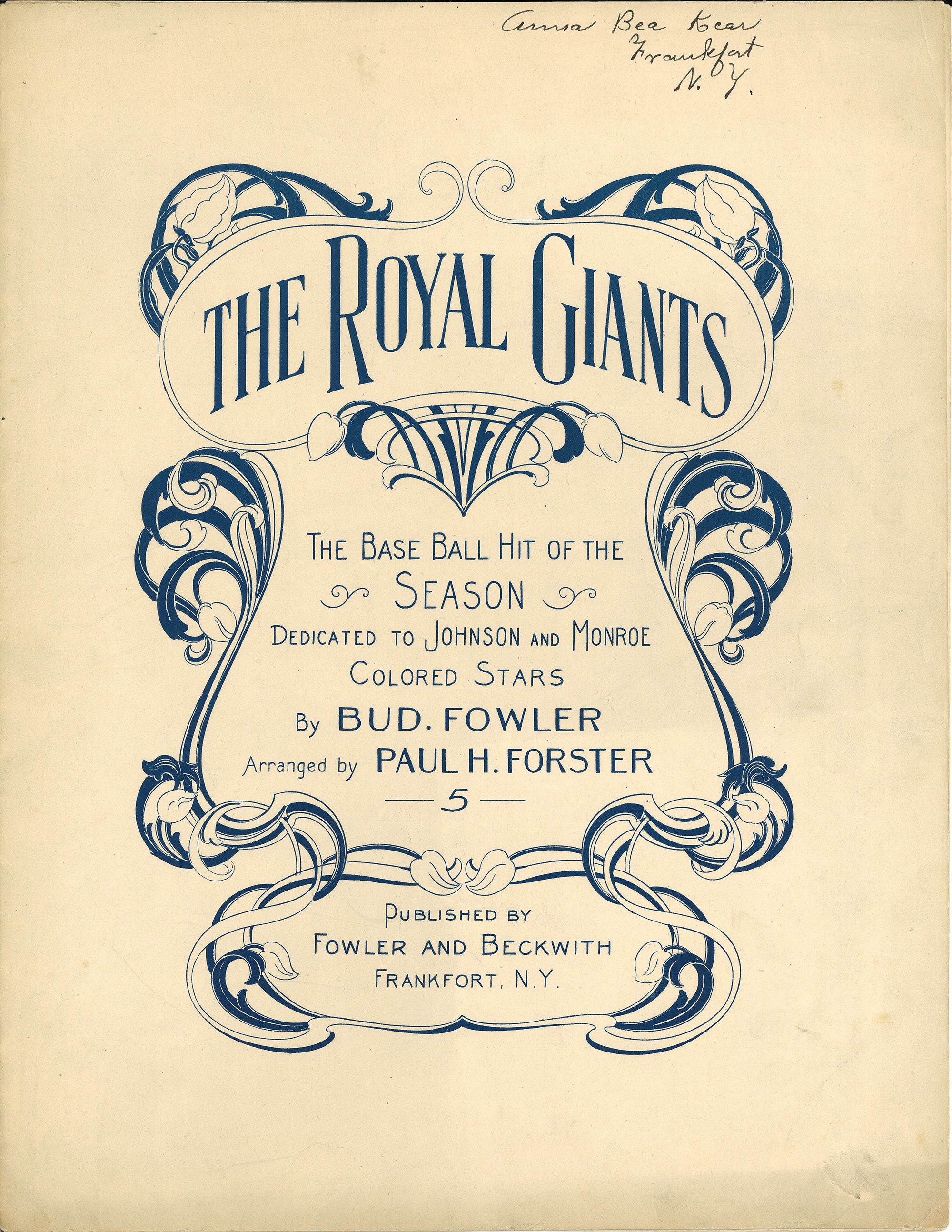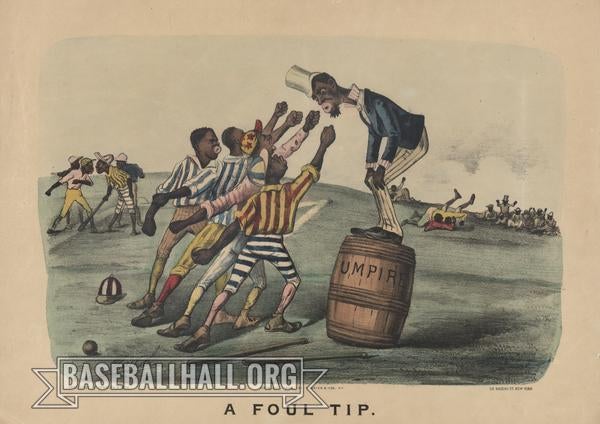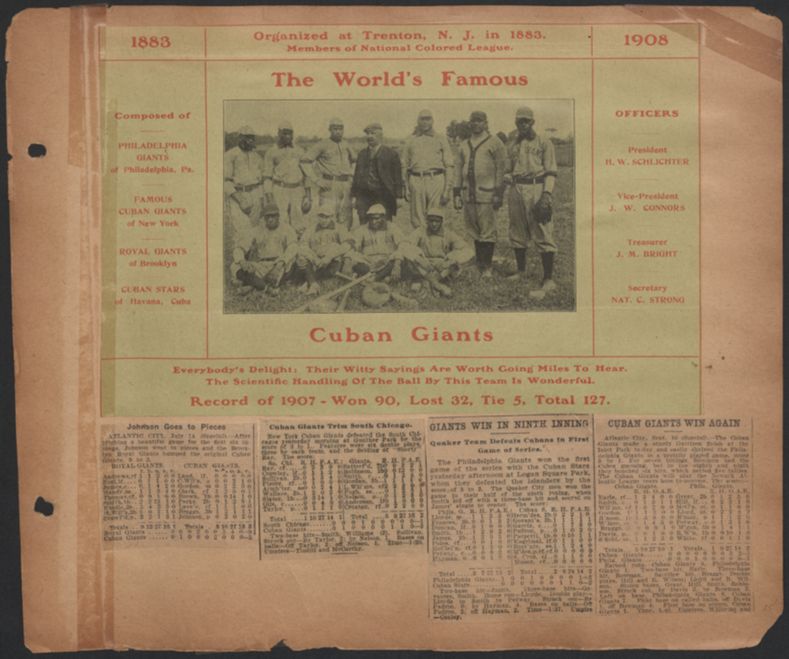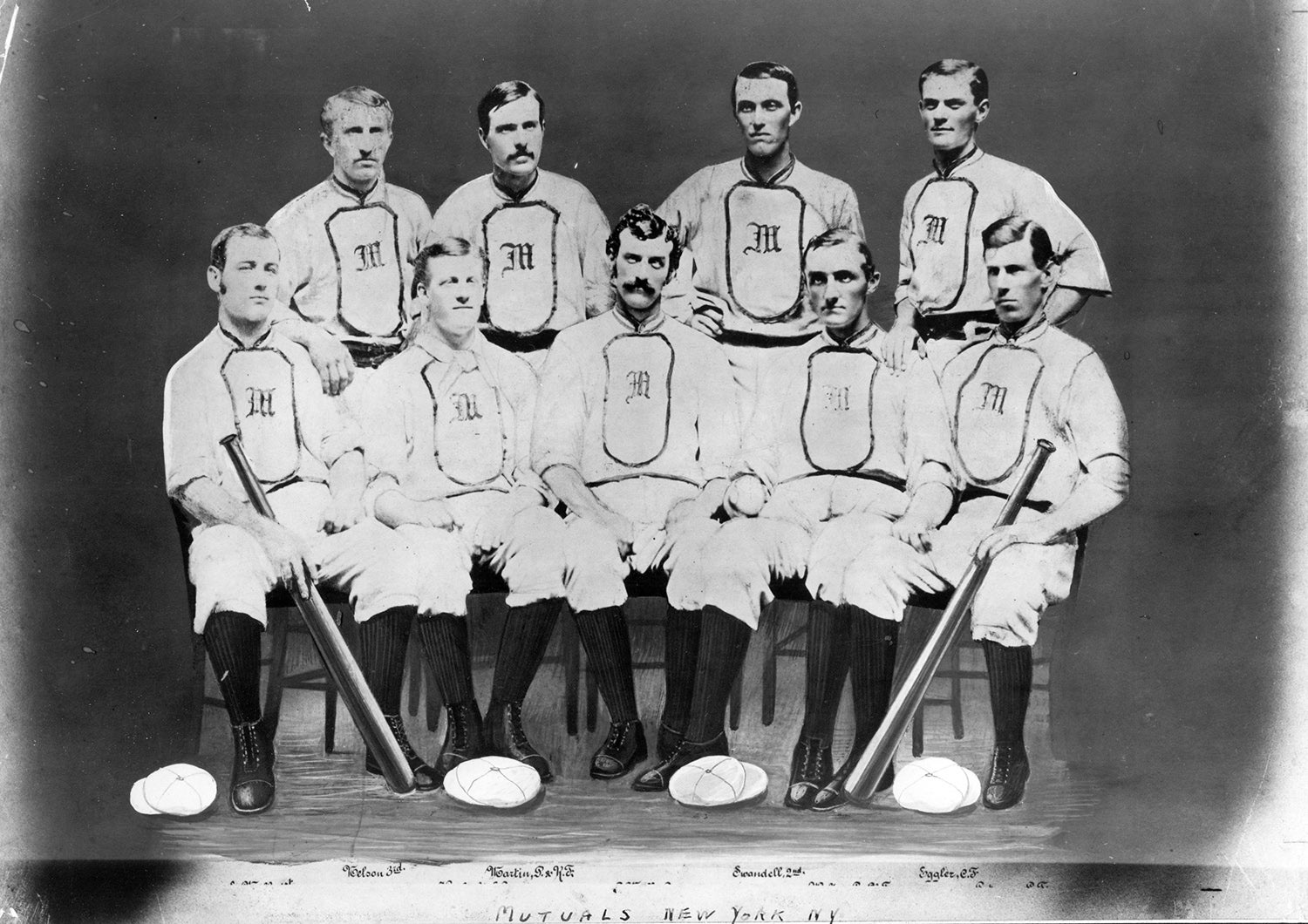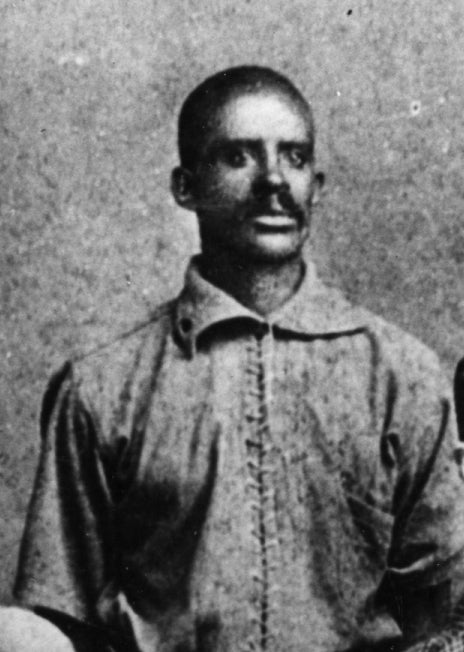- Home
- Our Stories
- #Shortstops: Standout Player
#Shortstops: Standout Player
Cooperstown is not the birthplace of baseball. However, Cooperstown is still home to one of baseball’s great pioneers.
John Jackson, better known as “Bud Fowler” during his playing days, was one of the first African Americans to play organized professional baseball. He grew up in Cooperstown, and even claimed to have played on Abner Doubleday’s apocryphal first diamond. Eighty years before Jackie Robinson, Fowler used his unique position to push for justice in baseball and America.
Fowler played professional baseball nearly 50 years before the Negro Leagues began in 1920. Instead, Fowler played all over the United States on completely white teams. He rarely stayed in one place for long. Over the course of nearly 20 years, Fowler played across the country, from New York to Massachusetts to Minnesota to Colorado.
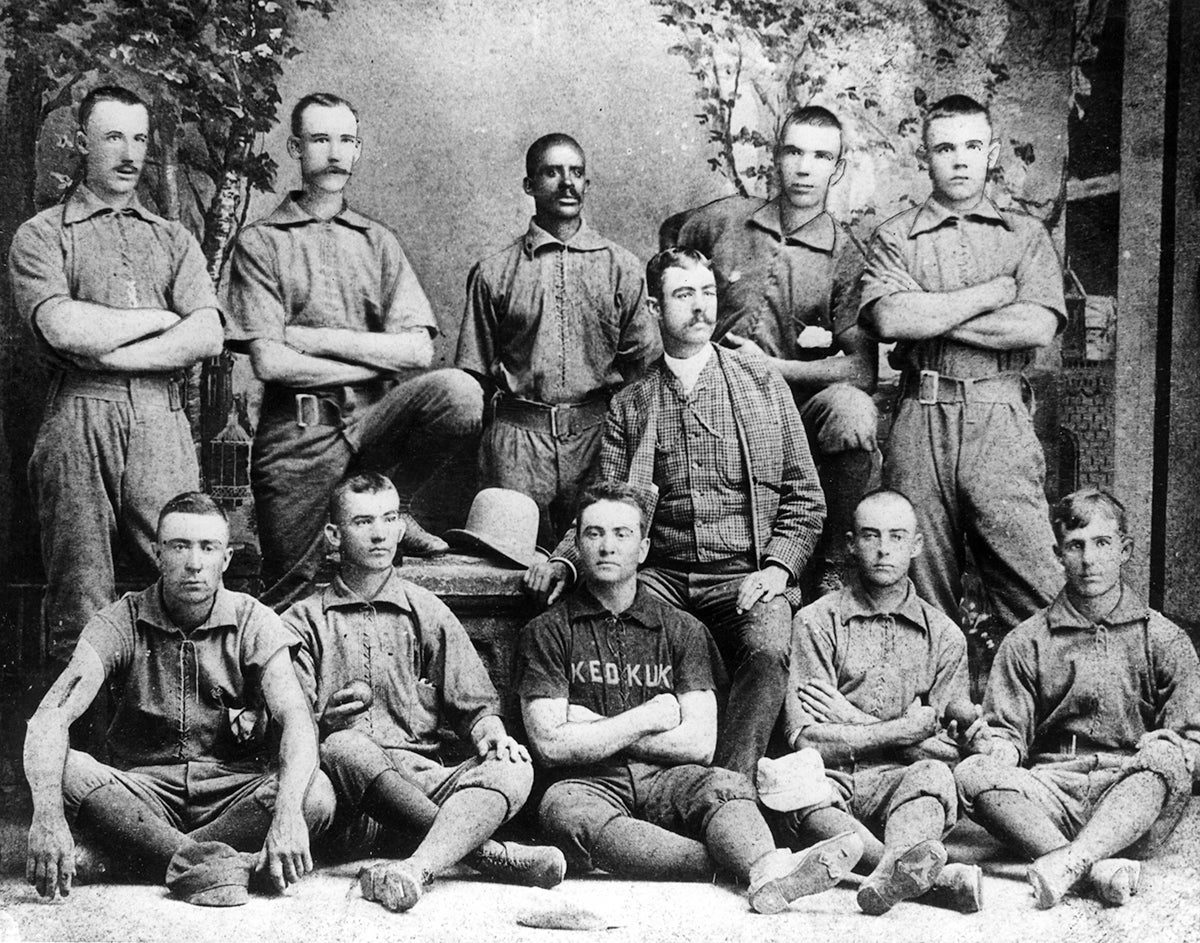
One of his most notable stops was in Keokuk, Iowa. In a photo in the Museum’s collection, Fowler is centered, standing out distinctly among his team. Fowler’s prominent position in the team photograph reflected his status in the team. When businessman Nick Curtis began a team in Keokuk, he employed Fowler as a way to draw fans and attract attention to the club. Keokuk had a notable Black population at the time, and Fowler’s status as one of the few Black ball players encouraged fan attendance. Fowler soon proved that he was far more than a curiosity. He became a star second baseman for Keokuk, gaining attention from clubs and newspapers around the country.
Fowler’s frequent flight from town to town was in part due to the racism he faced from his fellow players. For instance, his brief stint in Guelph, Ontario, was likely cut short by white players who did not want an African American on the team. Soon after Fowler’s time in Keokuk, segregation in baseball worsened. During the 1887 season, the International Association’s integrated Newark Little Giants faced racist backlash from fans and players. Most prominently, superstar Cap Anson refused to play against teams with Black players. Ultimately, the decision was left up to the owners, who collaborated to create a solid color line in professional baseball. International Association owners voted 6-4 to prohibit teams from signing Black players to contracts, beginning an era of segregation in baseball that would last almost unabated until 1947.
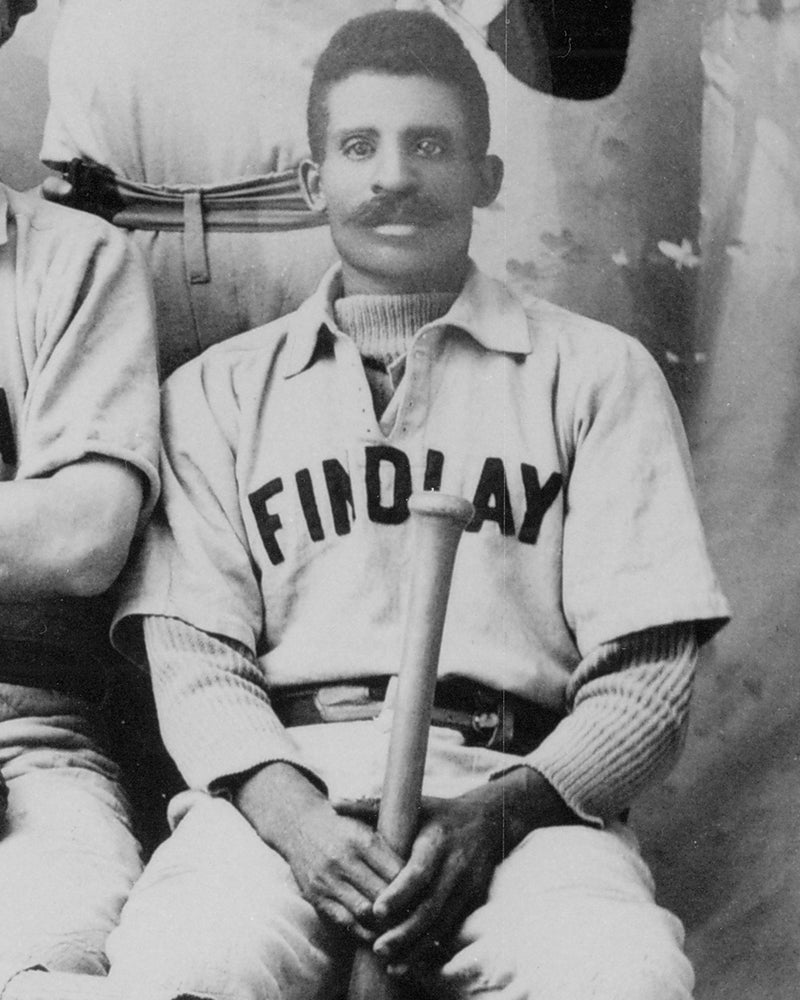
Despite the establishment of the color line, Fowler continued to play for integrated teams for the next few years. He eventually became a player and manager for a Black barnstorming team in 1895, known as the Page Fence Giants, and even helped form the team. In 1904, Fowler attempted to organize a professional baseball league for Black players, but his venture was unsuccessful.
After the end of his baseball career, Fowler remained committed to the advancement of Black Americans in society. In 1908, Fowler wrote a letter to the editor of the Binghamton (N.Y.) Press in response to a speech from Senator George Tillman, a virulent racist from South Carolina. Fowler responded to Tillman in part with a variation of Solomon Brown’s “He Is a Negro Still.” An excerpt is included below.
“If Jim should take my little farm
And make it yield just like a charm,
From it my empty pockets fill.
Why Jim is just a negro still.”
Fowler was well aware that the money he drew as a pro ball player typically went straight to the white owners he played for. At the peak of his career in Keokuk, Fowler once said: “When a player signs a league contract they can do anything with him under its provisions but hang him.” Always willing to stand up for himself, Fowler went on strike for three days in Keokuk over what he deemed to be an unfair contract.
Bud Fowler fearlessly voiced his opposition to injustice and doggedly pushed for the inclusion of Black Americans in pro baseball, even in extremely unfavorable conditions. This perseverance is his legacy, and it brought him back to Cooperstown as a member of the Hall of Fame Class of 2022.
Nick Gentry was a 2025 Library-Giamatti Research Center intern in the Frank and Peggy Steele Internship Program for Leadership Development

